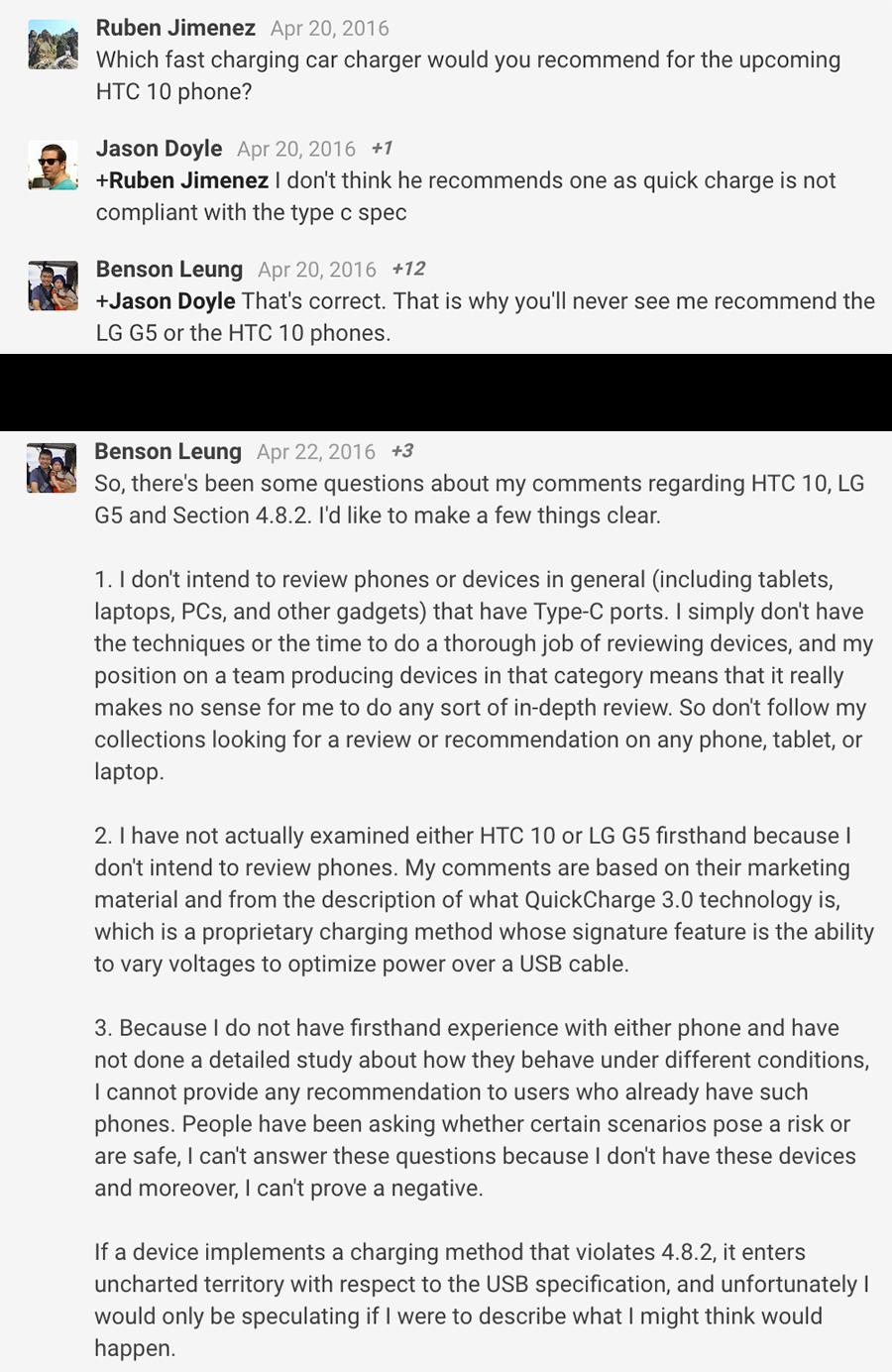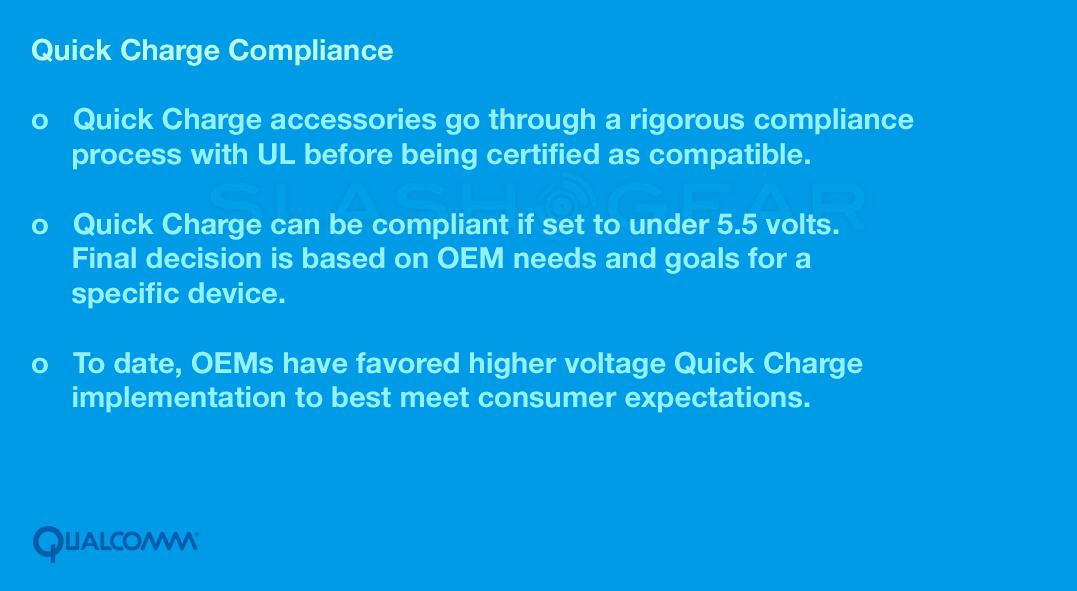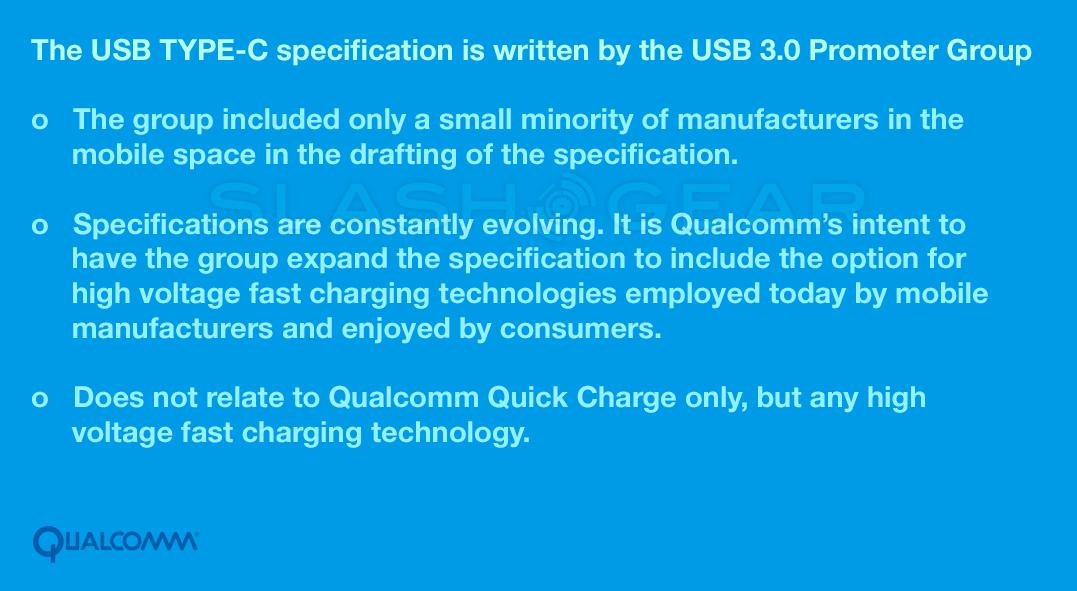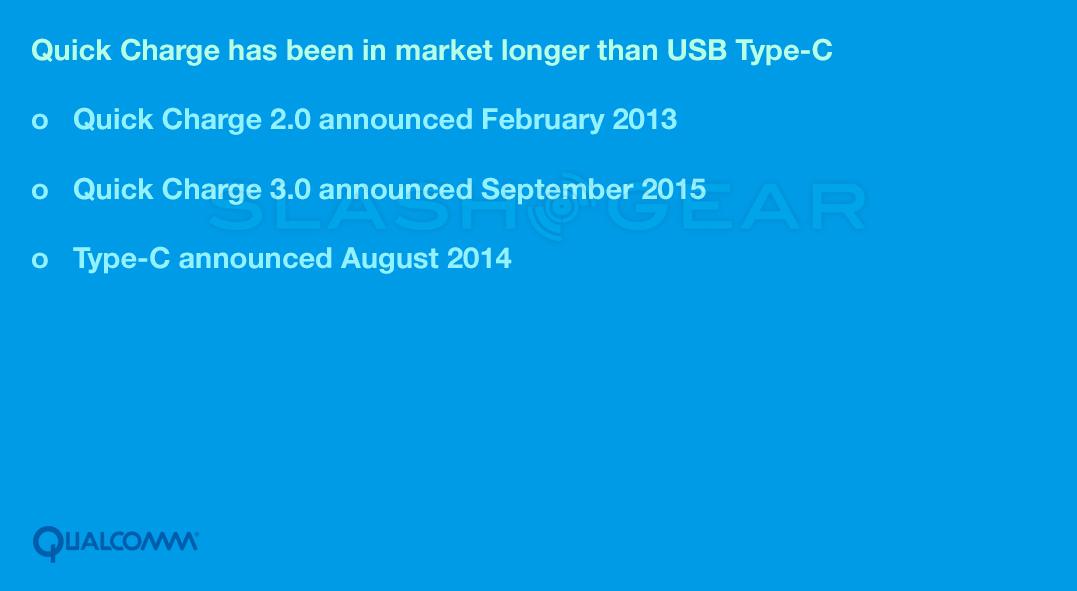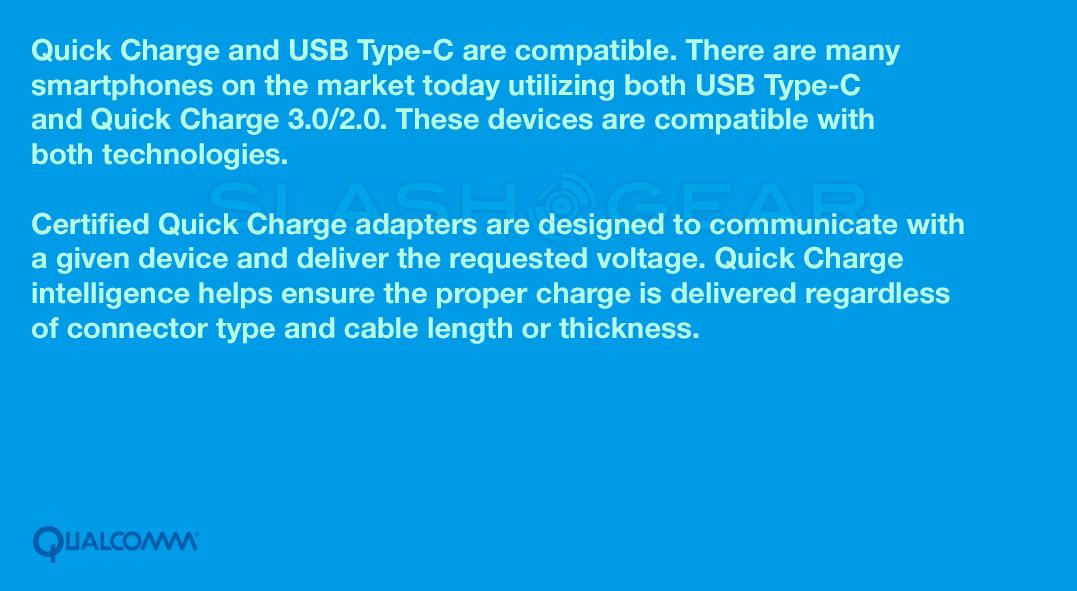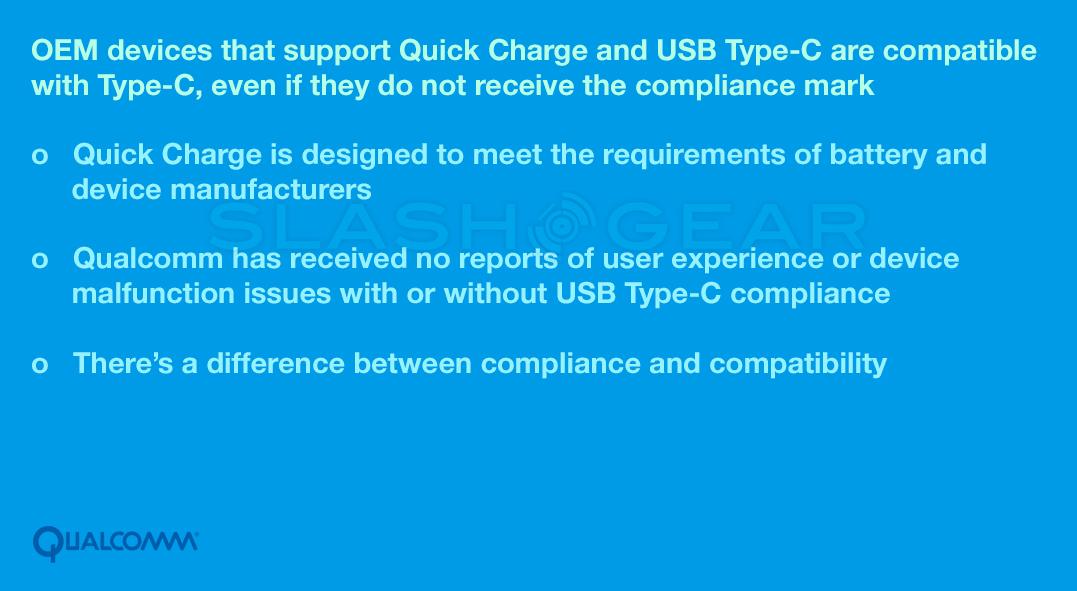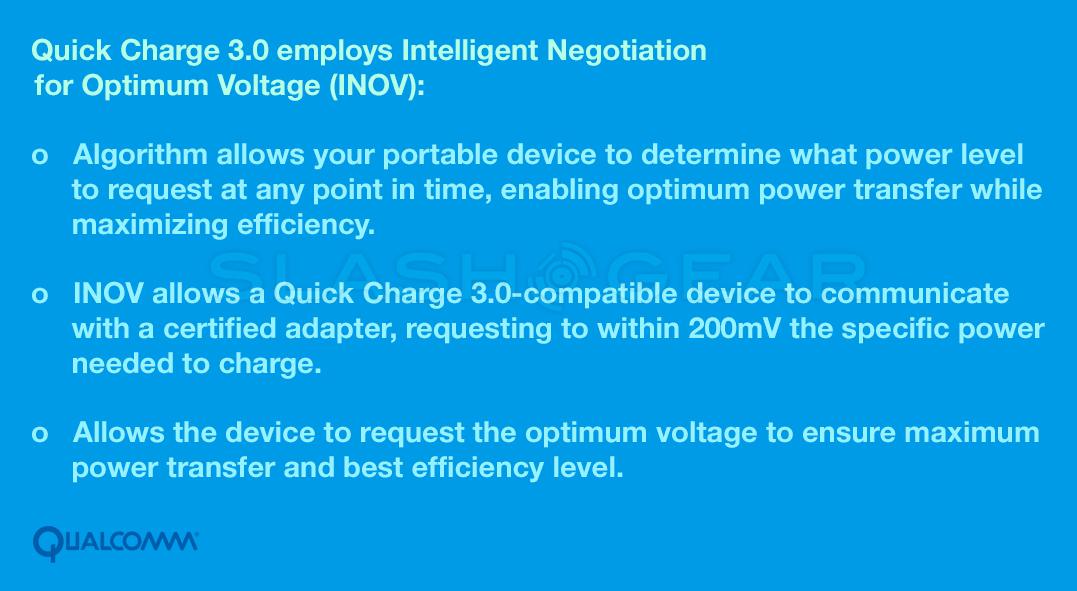What Qualcomm Has To Say About Quick Charge On USB Type-C
Google's Benson Leung called out the LG G5 and the HTC 10 this past due to their USB-C cords, both of which break official USB-C spec rules. Why? Qualcomm's Quick Charge technology. The cords do not fit the standard specifications for USB Type-C (or USB-C, however you want to say it) as set by the USB Implementers Forum. Today we've got a detailed set of answers from Qualcomm on why they're not worried about fitting this spec as defended by Leung – and why you shouldn't either.
What is the USB Implementers Forum? They, USB-IF, are a non-profit organization made to promote and support the Universal Serial Bus. They're the ones who make the rules, maintain the rules, and run the compliance program. The USB-IF was formed back in 1995 by the companies that first developed USB technology. They are not a government agency.
ALSO SEE: HTC 10 Review
What Benson Leung suggests when he outlined how USB-C could not co-exist with Qualcomm's QuickCharge 2.0 (and 3.0) back in November is the fact that Qualcomm's method "takes over the D+/D- (usb data) lines for good, so that Type-A port can't be used to communicate to your PC at the same time you fast charge."
USB-C apparently CAN deliver the amount of voltage QuickCharge is delivering – up to 20V, and voltages – up to 5A, using its own Power Delivery system. Qualcomm doesn't use that.
Leung also called out HTC and LG in response to a question from an HTC phone user this past week, which led to some forum fire over the weekend. Have a peek at the image below (tap to enlarge) to see what he spoke of regarding these two devices.
SlashGear: Why do you think that Leung is calling out LG, HTC, and Qualcomm for their QuickCharge USB-C cords? Is it important that these cords are "up to spec" in the ways he suggests?Qualcomm: "While we cannot speculate as to the rationale behind this post, it appears this person is commenting specifically on the usage of a USB Type-C connector in the phone itself, in conjunction with Quick Charge 3.0. Qualcomm and device manufacturers using Quick Charge employ rigorous design and test processes to deliver optimum usability to consumers. Quick Charge technology and USB Type-C have been shown to be compatible with one another."NOTE: All Qualcomm answers in this article can be accredited to Geoff Gordon, staff manager, Marketing, Qualcomm Technologies.SG: Why did Qualcomm choose to implement Quick Charge in a way that doesn't necessarily work with the standard USB-C "spec"?NOW SEE THIS: LG G5 Review Part III: what no other phone has
Qualcomm: "The reality is in fact the opposite. Qualcomm Quick Charge technology predates the USB Type-C spec by at least 18 months. Millions of Quick Charge enabled smartphones and compatible accessories were in market before the Type-C specification was finalized. Quick Charge was developed alongside mobile device manufacturers to meet the needs of their ever advancing products, directly addressing battery charging speed, a top pain point for consumers."SG: Should users be worried about the HTC 10 or LG G5, charging, data transfer, or the cords they have in the boxes they come with?Qualcomm: "Let's distinguish between compliance and compatibility. Quick Charge and USB Type-C are compatible. There are many smartphones on the market today utilizing both USB Type-C and Quick Charge 3.0/2.0. These devices are compatible with both technologies. Certified Quick Charge adapters are designed to communicate with a given device and deliver the requested voltage. In fact, Quick Charge intelligence helps ensure the proper charge is delivered regardless of connector type and cable length or thickness."
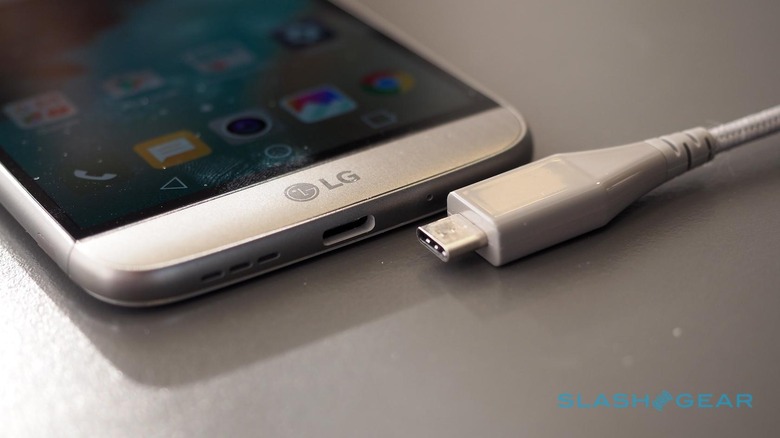
Qualcomm (cont.): "Quick Charge accessories go through a rigorous independent compliance program managed by UL. Pairing a certified adapter with a Quick Charge enabled device is the surest way to attain the fast speeds enabled by the manufacturers supporting Quick Charge in their devices."
Our chat with Qualcomm also included a number of points which we've gathered in a series of slides here.
Above you'll find Qualcomm's cover-all official statement on this situation – you may have read this statement in our original HTC 10 and LG G5 USB Type-C compliance article from last week, too.
Does a Qualcomm Quick Charge USB-C cable fit official USB-IF spec?
Not exactly.
Will a Qualcomm Quick Charge USB-C cable wreck your smartphone?
Almost certainly not.
Should you worry about any of this if you're an everyday average Android smartphone user?
Not so much, no.
Thus far we've had no problems with the USB cords included with the HTC 10 or the LG G5 – but again, that's not the issue here. What do you think will become of Qualcomm's Quick Charge in the future? With the folks at USB-IF adopt Qualcomm's spec, or something like it? Or will USB-IF have its own faster-charging solution enabled by manufacturers in a brand new way?

